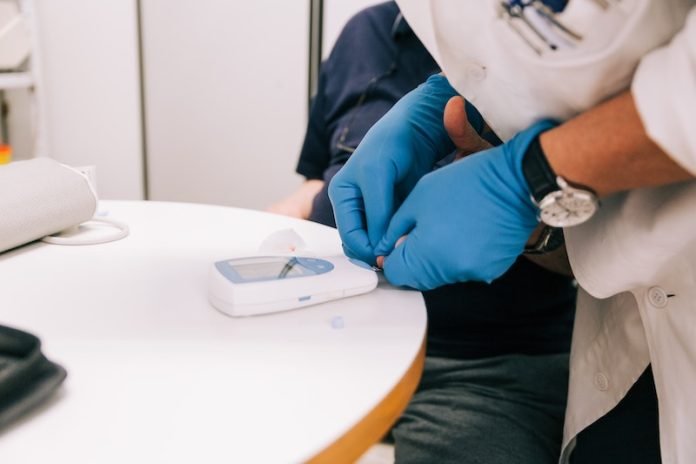
Alzheimer’s disease is a brain disorder that affects a person’s ability to think, remember, and live independently.
It usually affects people who are 65 or older, but sometimes it can happen to younger people too.
It’s a serious disease that gets worse over time, but scientists all around the world are working hard to understand it better and find ways to treat it.
What’s New in Alzheimer’s Research?
In Sweden, a team of scientists have made a big discovery. They found out that a special type of sugar molecule in our blood can tell us if a person is at risk of developing Alzheimer’s.
This discovery is exciting because it could help us to spot the disease much earlier than we currently can, up to 10 years in advance!
Sugar Molecules and Alzheimer’s
Robin Zhou, a medical student and researcher at Karolinska Institutet in Sweden, and his team are studying something called “glycans”.
Glycans are structures made up of sugar molecules. They found out that the levels of these sugar molecules change in the blood during the early stages of Alzheimer’s disease.
By doing a simple blood test and a memory test, we might be able to predict the risk of Alzheimer’s disease. This is a big deal because the earlier we can spot the disease, the sooner we can start treating it.
Alzheimer’s and Proteins
In people with Alzheimer’s, the nerve cells in the brain die. Scientists believe this happens because of abnormal build-ups of proteins named amyloid beta and tau.
If we start treating Alzheimer’s early enough, we might be able to stop too many nerve cells from dying.
Why Blood Tests?
Why are scientists looking at blood tests? Because they are a simple, easy, and cost-effective way to screen for diseases.
Other methods like brain scans can be expensive, and collecting fluid from around the brain and spinal cord can be difficult.
The Swedish Study
The Swedish researchers studied 233 people over 17 years. They collected blood samples from these individuals between 2001 and 2004, and then checked on them every three to six years to see if they developed memory loss or dementia.
The researchers found that people with certain levels of sugar molecules and tau protein in their blood were more than twice as likely to develop Alzheimer’s.
They also found that using a simple model that considers the levels of these molecules and proteins, the presence of a risk gene called APOE4, and a memory test, they could predict Alzheimer’s disease with 80% accuracy, almost ten years before memory loss symptoms appeared.
Looking Ahead
The researchers are now going to analyze blood samples from more people, both in Sweden and from other countries. They are also working with doctors to evaluate different signs of dementia at healthcare centers.
Sophia Schedin Weiss, one of the researchers at Karolinska Institutet, hopes that the sugar molecules in the blood will be a helpful tool in screening people for Alzheimer’s disease early.
This could be a game-changer in our fight against this disease.
Their research shows how important it is to keep looking for new ways to understand and treat Alzheimer’s. With hard work and creativity, scientists are making big steps forward to help those affected by this disease.
If you care about brain health, please read studies about vitamin D deficiency linked to Alzheimer’s and vascular dementia, and higher magnesium intake could help benefit brain health.
For more information about brain health, please see recent studies about antioxidants that could help reduce dementia risk, and coconut oil could help improve cognitive function in Alzheimer’s.
The study was published in Alzheimer’s & Dementia.
Copyright © 2023 Knowridge Science Report. All rights reserved.




